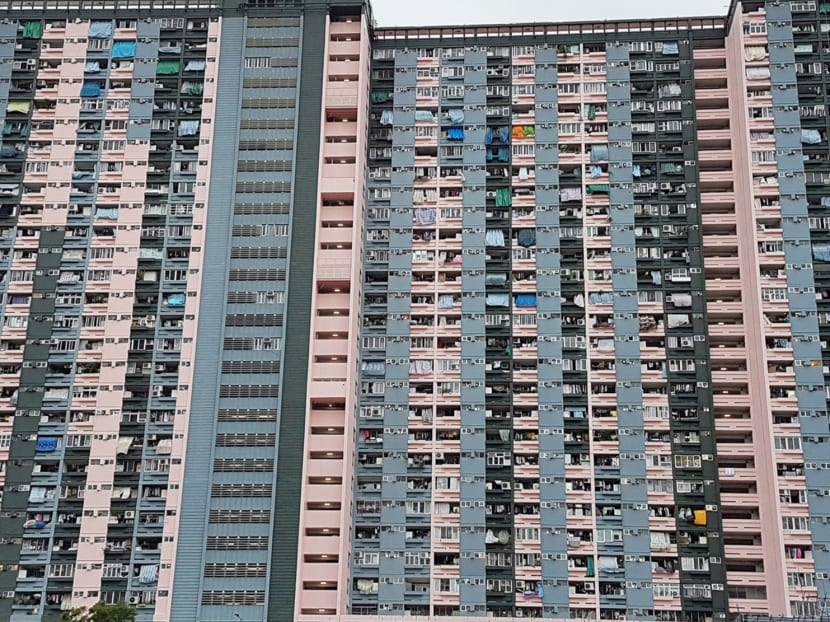Solution to HK’s housing woes is wishful thinking
Having lived in Hong Kong for 17 years before settling in Singapore, I read the report “No easy fixes in sight to Hong Kong’s housing woes” (July 10) with interest.

A Hong Kong public housing estate. Property prices in the territory have spiked over the last 20 years, with average home prices hitting about S$1,940 per sq ft — too costly for most people. Photo: Albert Wai
Having lived in Hong Kong for 17 years before settling in Singapore, I read the report “No easy fixes in sight to Hong Kong’s housing woes” (July 10) with interest.
My family, who comprised my parents and three other siblings, used to live in a 30sqm government flat. Unfortunately, not much has improved in Hong Kong since then.
Property prices have rocketed over the last 20 years: The average home price is about HK$11,000 (S$1,940) per square foot, which is beyond reach for ordinary people.
A simple solution would be to learn from Singapore and have a housing development board that would build government flats in large quantities and sell at affordable prices. Unfortunately, setting up such a board would be difficult.
First, releasing a large number of subsidised flats would cause private property prices to fall. Flats bought at sky-high prices may become negative equity, ie, asset prices drop below the loan price. This may trigger forced selling by the banks.
Second, the profits of banks and property companies would be affected. A significant portion of Hong Kong’s government revenue comes from land sales, property taxes and stamp duties.
A drop in property prices would lead to a drop in government revenue. The government would then need to either raise income and company tax rates or create new taxes such as a goods and services tax.
Politically, it is a difficult move. Among the 1,200 Election Committee members who voted for the Chief Executive, many have links to the banking and property sectors.
It would be difficult to implement policies that hurt their business interests.
Hong Kong does not have universal suffrage. To get elected as Chief Executive, it is more important to get the Election Committee members’ approval than the general public’s approval.
There is indeed no solution to Hong Kong’s housing woes in the forseeable future.






